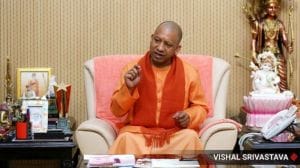If the Congress found its voice
If one could ask the Congress about its inability and unwillingness to pose serious questions to the BJP...

If one could ask the Congress about its inability and unwillingness to pose serious questions to the BJP and Narendra Modi about their role in the violence of 2002, and also the Modi government’s reluctance to heal the wounds of Gujarat, how would the Congress respond? It is tempting to think that like Narendra Modi, the Congress might also walk out of a TV show if pressed too hard. But if it were to respond, it would give a series of pragmatic and ‘real-politic’ responses.
If the Congress were to be candid, a quality that it has lost, it might admit that the Congress’s own record in dealing with communal and sectarian violence has been poor. Its commitment to ensuring justice for the victims of violence has also frayed. It might remind us, if the Congress itself has not forgotten it, of Nehru and Sardar, and tell us that the commitment and the will that was shown by the nascent Indian state while dealing with the post-Partition violence remains unmatched by any subsequent government. It might also remind us of that noble gesture of Manmohan Singh, who expressed unqualified regret and sought forgiveness for the role of the party in the anti-Sikh violence of 1984.
The Congress might also say that it indeed is a ‘system’ as imagined by Rajni Kothari, that the Congress in Delhi and the Congress in Gujarat are not guided by similar perceptions about BJP-ruled Gujarat. And this allows Sonia Gandhi to unequivocally condemn the ‘barbaric acts’ of 2002 and also permit the Gujarat Congress to remain unabashedly silent on the Tehelka expose.
The Congress could invoke ‘real-politic’ and argue that in a communally divided Gujarat an aggressive secular polity will only strengthen Narendra Modi. It would also admit that in the past few months the Congress strategy has been to seek collaboration with the dissidents within the BJP. Many of the new allies of the Congress are deeply implicated in the violence of 2002 and all of them remain firmly committed to Hindutva politics. The Congress would argue that searching queries on 2002 would certainly weaken its ‘anti-Modi’ alliance and diminish its chances in the elections.
The Congress could diabolically argue that it is in the interest of the party at the national level that Gujarat remains a BJP ruled state and that Narendra Modi remains confined to Gujarat politics. A Modi ruled Gujarat remains a constant reminder to the rest of the country and its own recalcitrant allies of the dangers of allowing the BJP back to power at the Centre.
The Congress could also adopt the Modi argument that the elections in 2007 are to be fought on issues of governance and development and any reminder of the past violence can only lead the voters astray. It could argue that its emphasis on the welfare and well-being of the ‘common person’ is a far more attractive poll plank than a shaky faith in secular polity. It could also be as blatant as Modi and say that the riots are now subject to judicial processes and it does not wish to influence the judiciary or the riot commission by making any statement on the violence.
An imaginative Congress could say all this and much more and also believe it to be true. But the Congress is incapable of admitting that it has lost all faith in the ideals and the vision of the party. The Congress was created through what Gandhi called the Constructive Programmes. Khadi, basic education, removal of untouchability, regeneration of village communities and communal harmony were not empty promises. The Congress worked tirelessly to build the nation and the civil society through these programmes. It gave the potential to a political movement to become a transformative force and create a nation. It also gave the party the moral and ethical framework to think about itself and its politics. That Congress was not afraid of religion and faith like the Congress of the present. It engaged with the question of faith and belief at a fundamental level. It accepted the availability of religious ideas for all. It was deeply secular as it understood the religious instinct and accepted that Truth was not a preserve of any one community or religion. Its notion of equality of religion was not based on equal distance from all religions nor on equal ignorance about all questions of faith. It was based on an equal engagement with all religions, on deep and abiding faith in the capacity for Truth that religious ideas provided. This gave the Congress the capacity to distinguish between bigotry, communal politics and faith. It gave it the moral and political courage to condemn the former and deal unsentimentally with the violence that it generated. It also had the capacity to atone and repent. But that was in the past.
If the Congress were capable of self-examination it would realise that its salience and relevance in Indian polity can come not from an ability to cobble together amoral alliances but by re-asserting that politics is and ought to be a moral universe and accept that morality in politics is still a superior virtue.
The writer is an Ahmedabad-based social scientist tridip.suhrud@gmail.com
Photos





- 01
- 02
- 03
- 04
- 05


























